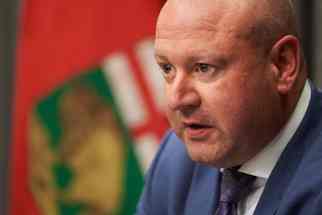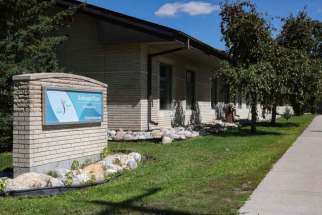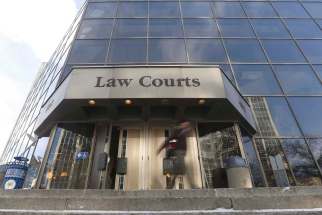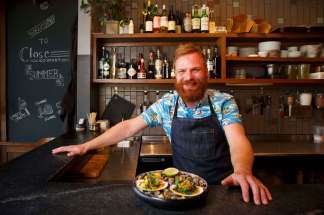Thinking outside the (jury) box Pandemic not excuse to dodge civic duty
Read this article for free:
or
Already have an account? Log in here »
To continue reading, please subscribe:
Monthly Digital Subscription
$0 for the first 4 weeks*
- Enjoy unlimited reading on winnipegfreepress.com
- Read the E-Edition, our digital replica newspaper
- Access News Break, our award-winning app
- Play interactive puzzles
*No charge for 4 weeks then price increases to the regular rate of $19.00 plus GST every four weeks. Offer available to new and qualified returning subscribers only. Cancel any time.
Monthly Digital Subscription
$4.75/week*
- Enjoy unlimited reading on winnipegfreepress.com
- Read the E-Edition, our digital replica newspaper
- Access News Break, our award-winning app
- Play interactive puzzles
*Billed as $19 plus GST every four weeks. Cancel any time.
To continue reading, please subscribe:
Add Free Press access to your Brandon Sun subscription for only an additional
$1 for the first 4 weeks*
*Your next subscription payment will increase by $1.00 and you will be charged $16.99 plus GST for four weeks. After four weeks, your payment will increase to $23.99 plus GST every four weeks.
Read unlimited articles for free today:
or
Already have an account? Log in here »
Hey there, time traveller!
This article was published 27/08/2020 (1934 days ago), so information in it may no longer be current.
By 9 a.m. the line is more than 100 people deep and snaking around three sides of the RBC Convention Centre.
But they aren’t here for the Home and Garden Show or a busy business convention. They are potential jurors who have been summoned to do their civic duty for two impending trials.
COVID-19 has had a huge impact on the court system, with these jury trials being the first to be scheduled in Manitoba since the March lockdown.
Typically, potential jurors awaiting the selection process have sat in close quarters in two courtrooms at the Winnipeg Law Courts. But social distancing requirements forced justice officials to think outside the (jury) box and move proceedings a couple blocks up the street.
Nearly 300 summons were issued for the two murder trials, one of which has four accused.
“I’ve got my mask,” said one potential juror Thursday morning, standing in line on St. Mary Avenue. “I have no idea what it is going to be like in there.”
“I understand when it comes to staying safe, everyone has their own view and comfort level. COVID-19 should not be a concern for you if you are asked to be a juror.” — Queen’s Bench Justice Chris Martin
Once inside, jurors are directed to a security entrance where, just as at regular court, Sheriff’s officers process them through a scanner and ask them several COVID-19 screening questions – six potential jurors are turned away due to their answers and warrants are prepared for another 11 who didn’t arrive on time for the 10 a.m. start – before they are taken to a large convention hall where they can be seated a safe distance apart.
Masks aren’t required, but many jurors are wearing them, with masks available for those who want one.
In another large, nearby convention hall is the courtroom, where Queen’s Bench Justice Chris Martin, Crown and defence lawyers, court staff, Sherrif’s officers and the accuseds have assembled for the formal jury selection process.
But before that happens, Martin, speaking through an audio hook-up to jurors waiting in the other convention hall, addresses the elephant in the room.
Extensive measures have been put in place to ensure jurors’ safety, including ample spacing, the ready availability of masks and hand sanitizer, and the disinfection of all touchpoints, Martin says. Expressing some “general, non-specific worry” about contracting coronavirus will not be enough to escape jury duty, he says.
“I will not excuse people lightly – it will be the exception, not the rule,” Martin says.
“I understand when it comes to staying safe, everyone has their own view and comfort level,” he says. “COVID-19 should not be a concern for you if you are asked to be a juror.”
The first jury to be selected is for the trial of Kane Moar, charged with second-degree murder in the 2018 stabbing death of 34-year-old Ricardo Hibi.
Whether Martin’s words have had an impact, or whether it wasn’t a significant issue to begin with, only two of the 31 people screened for selection say they wish to be excused from jury duty because of the coronavirus.
“My husband and I don’t feel comfortable sending our kids to school, so we will be home schooling them,” says one woman, a teacher.
Another woman, a school counseller, tells Martin she thinks it important she remain at school for children who might need her during this stressful time.
Martin declines to excuse either woman, and instead asks that they remain on hand until the end of the selection process. Neither woman is ultimately selected.
Another six potential jurors are excused for reasons including medical ailments and financial hardship.
The coronavirus isn’t a factor in the selection of jurors in the trial of three men and one woman accused in the 2018 stabbing death of Jason James, but racial bias is. All four accused are Indigenous. At the request of the accused, the court asks each potential juror if the four accused’s race would impact their ability to judge the trial fairly.
Of 67 jurors screened for election, six say the fact the four accused are Indigenous could impact their ability to remain impartial. Martin automatically excluded them from jury consideration.
dean.pritchard@freepress.mb.ca

Someone once said a journalist is just a reporter in a good suit. Dean Pritchard doesn’t own a good suit. But he knows a good lawsuit.
Our newsroom depends on a growing audience of readers to power our journalism. If you are not a paid reader, please consider becoming a subscriber.
Our newsroom depends on its audience of readers to power our journalism. Thank you for your support.
History
Updated on Friday, August 28, 2020 12:40 PM CDT: Adds the judge automatically excluded the six from jury consideration.







